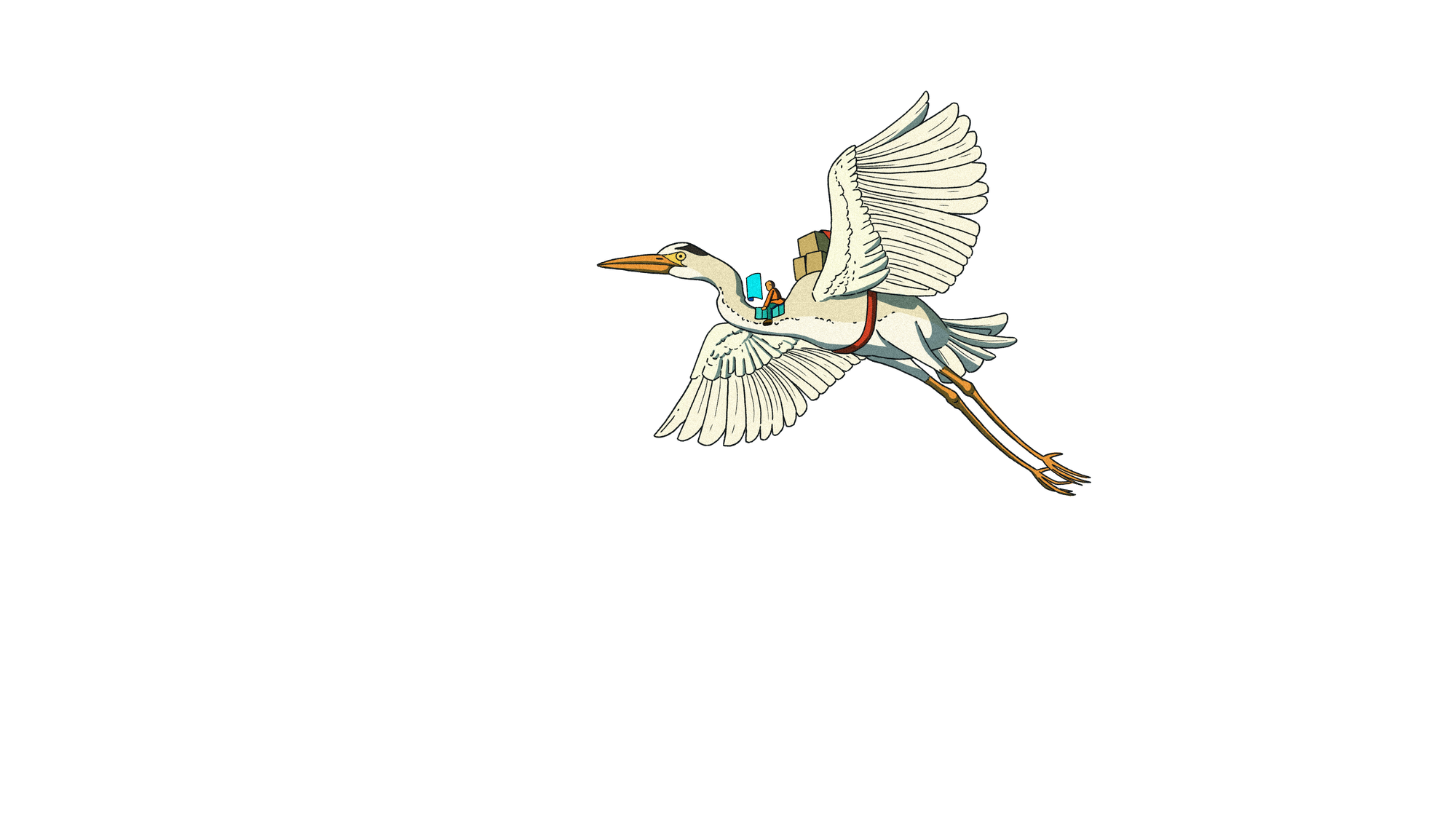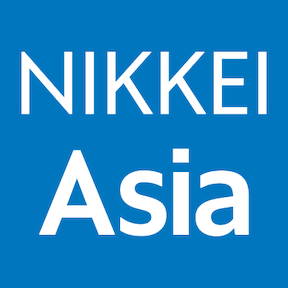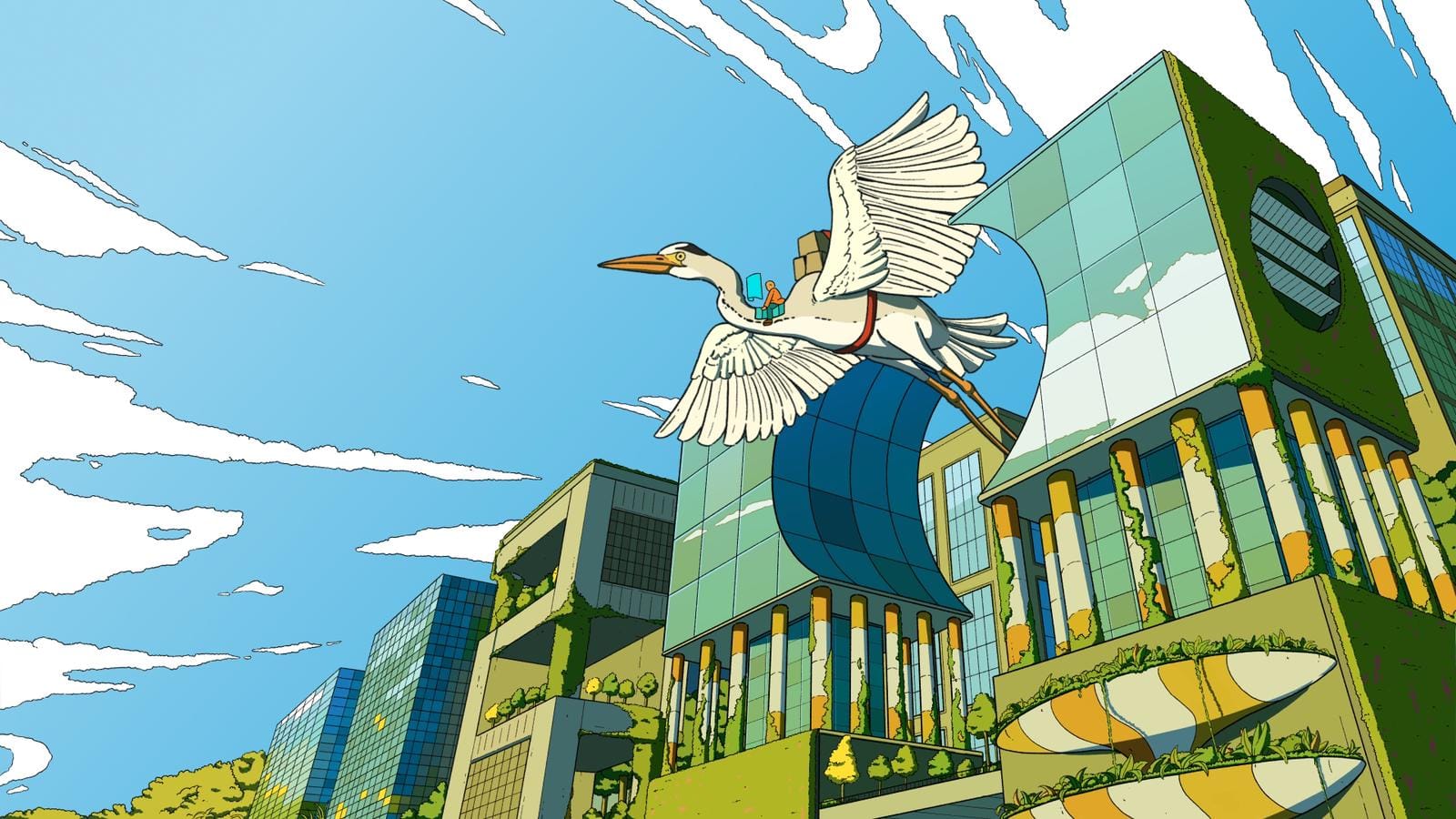I last wrote to y'all in early February, celebrating snowbird’s first anniversary. Days later, the geo-economic order began to tilt and fray. I worried what these tides would do to a tiny pontoon boat like mine. Most snowbird projects shape mid-to-long-term business strategies, adapting to a shifting world. I fully expected them to be put on hold. Every business I spoke with had to rethink the world they were building for, much like the early pandemic days. We could either wait and watch, or act.
There was a very quick realization that "oh this uncertainty is going to stay" and the businesses I was talking to realized that they better act. Many companies have found a way to metabolize uncertainty and use it as the ignition to explore what they could be - it's thrilling to be accompanying them on this path.
Work ramped up at an intense but manageable pace - across industries, across various company sizes, across geographies. In parallel, I enrolled in a real-brick-and-mortar language school (for Japanese) that was way more demanding than an app. There was more to read, watch, listen and digest than ever before. We hired our first full-timer earlier than we'd have expected. We hired a part-timer soon after that. It's all fantastic news! Very much #blessed. But hiring takes time. Onboarding takes time. The work still had to happen. So I was kind to myself and decided to give the newsletter a break. I've been pretty regular with this weekly note in one form or the other since 2016. Once I hit pause, getting back in felt harder every successive week. So here's me breaking that.
Finds for the week
It is a laughable understatement that "the world is changing". This is different from the pandemic in one big way - that was ONE big thing causing a thousand other things. We had a sense of causality. What we have now is more like thousands of fires in hundreds of rooms in scores of floors. Our sensory capabilities shut down with overwhelm when this happens.
The way to put out these fires starts with something very simple: attention. When everything is on fire, what are few things you are paying your undivided attention to? Whatever this thing is, the more you pay attention, the more you realize how interconnected it is to everything else around you. You realize the big large scary problems of the world, and small silly problems of your life, are not so siloed after all.
I have been paying attention to something these past few months: the rice shortage in Japan.
Rice isn't just rice in Japan. Literally. One of the first words you learn in Japanese is the word for a meal: gohan. Breakfast is asa gohan, lunch is hiru gohan, and dinner is ban gohan. Gohan is the Japanese word for rice. One-word-equity for any significant meal of the day is a big feat! So when a crisis like this pops up, it's causes and effects are fractal in nature - a thousand things brought us here and a thousand things will spring from this. I saw geo-economics, culture, politics, climate and tech swirl together in a bowl of rice.
- SEVERE SHORTAGE: I read about it the first time in October of last year. Japan was facing the most severe shortage in decades. Empty shelves. Price surges. Panic buying. It's been 7 months. We're still in the thick of it. For the longest time consumption of bread was on the rise (not to mention fewer and fewer households in a shrinking Japan), so the government kept reducing the output of rice. But they didn't factor in record numbers of tourists gobbling up bowls or severe climate change ruining crops.
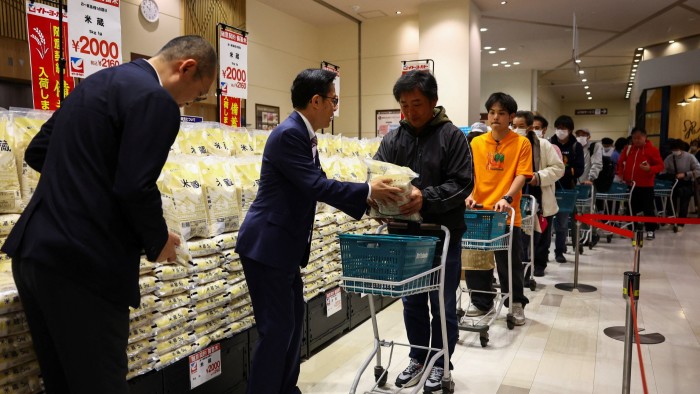
Excellent example of a problem that everyone involved very much saw coming.
- RICE SHAPES CULTURE: Food isn't just sustenance. It shapes us even before it enters our bodies. Researchers used natural language processing to analyze a billion words to study cultural differences on Weibo, one of China’s largest social media platforms as well as Twitter data comparing prefectures in Japan. The data explained cultural differences in China (economic development and urban-rural differences) through the lens of rice versus wheat farming. Rice farmers had to coordinate shared irrigation networks and exchange labor to cope with higher labor requirements. In contrast, wheat relied on rainfall and required half as much labor. This legacy made southern China more interdependent. Rice areas used more words reflecting tight social ties, holistic thought, and a cautious, prevention orientation. Rice cultures, like that in Japan are more prevention orientation than people in, say, Australia. And yet, we couldn't prevent this massive rice shortage of today!
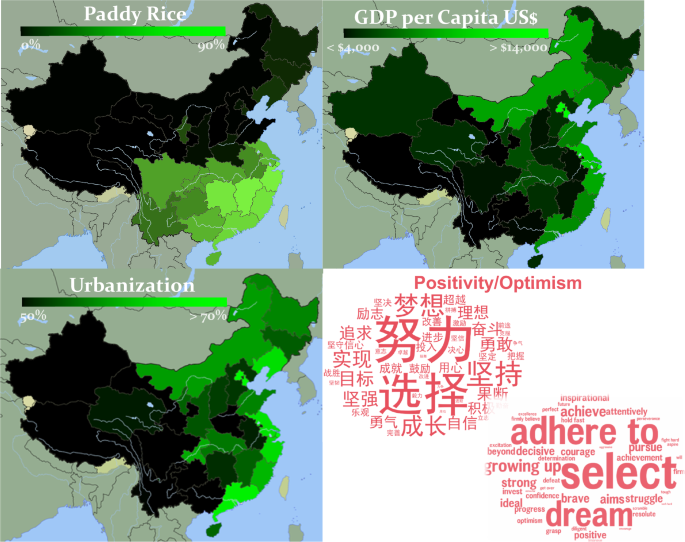
What you grew decided how you behave.
- LANGUAGE OF RICE: Speaking of...how should we even talk about rice in Japan? The Inuit languages have a few dozen words for 'snow' - when your world is shaped by the omnipresence of something in your environment, you need more nuance to communicate it. Is there a standard, simpler way of describing ‘rice that has a sweet aroma, is fluffy yet firm with a strong umami flavour’? There will be soon. A research centre and a private company in Japan are working on a rice terminology dictionary. They have about 100 words and are in the process of defining them.

A taste for the right words
- OF COURSE, AI: China has been shaped just as much by rice as Japan has. And now China is invested in shaping the future of rice. Aggressive and decisive investments in agri-tech research and development are paying dividends. Salt-resistant species could boost country’s rice harvest by nearly 20 per cent - making it possible to irrigate fields with seawater! Now AI has entered this effort...
"While Washington obsesses over GPU supplies and model benchmarks, a quiet AI revolution is unfolding in places few analysts bother to look, China's countryside. In provinces like Jilin, Yunnan and Hubei, rice farmers are turning to AI not to code apps or write essays but to save their crops from flooding and disease. China is showing the world a different roadmap of AI's path forward, one that isn't dominated by billion-parameter models or trillion-dollar market caps."

Less bootleg Ghibli slop, more bags full of rice.
- CHANGING MINDS: There is a certain sense of jingoism around food. Indians, Pakistanis and Filipinos all claim to have the "best mango" in the world. The Japanese feel the same about rice - no one else is good enough. I want to round this out by noticing how, when faced with dire shortages, seemingly unshakable beliefs become malleable. Given the cultural tug-of-war between the two countries, Japanese consumers developing a taste for South Korean rice might be just what this geo-economically fraught world needed!

No complaints!


